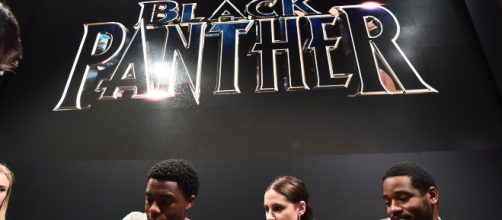I finally got around to watching “Interstellar” the other day. It was an amazing film. The cinematography and scientific accuracy were great! But I could not help but notice the utter lack of People Of Color. There was one Black man, who, yes, traveled across space with the two other White main characters, but he, of course, died and was so disregarded during the entire film that his White shipmates left him to age abroad for 23 years! As is the natural order for people of color on screen, viewers were not allowed to learn anything of his background story.
Any other people of color in the film did not play even a minorly significant enough part for any viewer to take note– this conclusion made simply for the fact that I did not notice any other people of color in the film.
Black people on screen
Why are there no people of color in overtly White portrayals of science fiction and fantasy worlds? Maybe it is just that in White fantasies, there are no people of color.
All these majorly White-cast science fiction films might lead one to think that Black and brown people cease to exist in the future. And honestly, this would not be so surprising considering how they forget about us incessantly, in television and film, and otherwise. "Interstellar" was a masterpiece, but we need to look forward to more popular examples of Afrofuturism in the future.
(Also: the representation and misrepresentation of other cultures and ethnicities should be addressed (e. g. Whitewashing of Asian characters, etc.))
'Black Panther' in contrast
It was only in the summer of 2016, decidedly near the release of “Captain America: Civil War,” that Marvel fans received word of a “Black Panther” movie.
In “Civil War,” Black Panther’s first introduction was rather modest. We met him as T’Challa, son of T’Chaka. However, as Captain America’s long lost friend Bucky Barnes is framed as the killer of T’Challa’s father, we meet T’Challa again as the vengeful Black Panther, set out to kill Barnes.
Black Panther was the first Black superhero in mainstream American comics.
He came long before the other Black superheroes avid comic book readers and TV watchers know, such as Luke Cage, Falcon, or Green Lantern John Stewart.
Black Panther is the king of Wakanda, a fictional African nation, years in advance of what Westernized nations can only imagine. It is the most technologically advanced country in the Marvel universe. What makes “Black Panther” most exciting, howbeit, to not only Marvel fans but to the Black community as a whole, is that it gives a more than sufficient demonstration of what Africa could have been without colonization.
Racism in fiction and out
Unfortunately, presumably racist dissenters always argue something to the extent that White people educated Black People in some way.
This is a ridiculous notion and proves how fandoms alienate Black people and do not pay any heed to disrupt racism. Needless to say, this argument is far from the truth and refuses to acknowledge that Europe relied on the appropriation of other cultures for their own biased standards of civilization.
As a matter of fact “Black Panther” is centered around the political struggles of Wakanda. They are challenged with maintaining the country’s independence and protecting its resources from international corruption. It seems the only way for an African’s culture to be preserved is for it to hidden.
It is a sad reality, but maybe the most accurate portrayal of a Black community fighting to sustain certain aspects of their existence that you can find on screen, which makes it one of the most important films today.
In a time of distinctly transparent political strife, especially whereas it comes to Black people, nothing has really changed. Black people have always been struggling, and we have always been dying– both in spirit and obviously physically– at the hands of systematic injustice, racism explicitly. The difference is the cameras. On one hand, they are helpful, On the other, they are desensitizing.
That is why “Black Panther” is so essential for the Black community in the current atmosphere. It is perhaps one of the only places where we can see Black people being recorded and not being killed or brutalized. It is one of the only spaces where Black people reign instead of White. And while it is fiction, its support means our success. Expected release: February 16, 2018.


